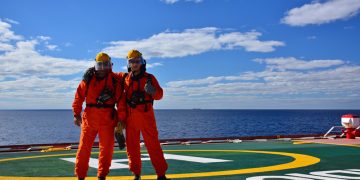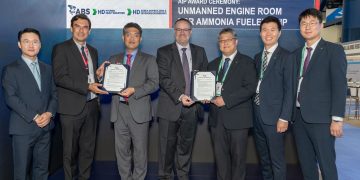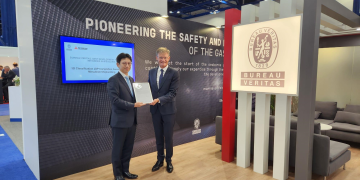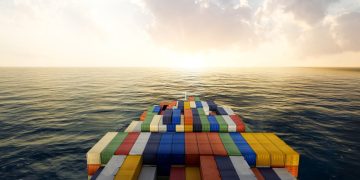If shipping was a country, it would be the world’s sixth biggest air polluter, triggering a constant debate for the industry’s reform of business models towards a greener pathway. However, the capital-intensive nature of the sector along with a high dependence on energy-dense fuels has made decarbonization a complex issue, requiring a collaboration of private and public entities to drive sufficient regulatory and market incentives.
Though not included in Paris Agreement, if it is to align with the goals of global community for reducing the adverse effects of climate change, shipping needs to act faster. At the moment, the private sector seems to be leading the way by pledging to several commitments by 2050 -see the recent first CO2 caption at sea by K Line or the pledge on zero carbon transport by 9 giant retailers– but the current challenges require the adoption of zero emission vessels and fuels as the default choice by 2030. Amid this landscape, the debate lies in the role of decisive government and policy action to reach those green ambitions.
3 recent decarbonization initiatives to watch
- MPA Singapore’s Global Centre for Maritime Decarbonization (GCMD): On 1st August 2021, MPA Singapore and six more founding partners opened the Centre with the aim to spearhead the energy transition journey for shipping, through facilitating development of decarbonization technology and test-bedding, including future marine fuel trials with the industry and research communities in Singapore. A total of 31 companies have also expressed interest to partner with the centre to advance maritime decarbonization solutions.
- The Mærsk Mc-Kinney Møller Center for Zero Carbon Shipping: In mid-2020, Danish shipping giant Maersk and five more leading shipping players, including ABS, Cargill, MAN Energy Solutions, Mitsubishi Heavy Industries, NYK Line and Siemens Energy, set up the non-for-profit organization deploying R&D to help develop new fuel types and technologies for shipping decarbonization, as well as to facilitate regulatory, financially and commercially, shipping’s transition to greener future.
- Call to Action for shipping decarbonization: Ahead COP 26, the Getting to Zero Coalition convened a number of stakeholders from the entire maritime community, including shipping, chartering, finance, ports, and fuel production, under the Call-to-Action initiative. The signatories to this call support a full shipping decarbonization by 2050 in line with Paris Agreement, underlining that private sector action must go hand-in-hand with government action.
The elephant in the room: Carbon pricing
While there have been notable efforts, such as the development of a $ 5 billion fund to develop carbon free shipping technology, the industry, through major shipping bodies like ICS, BIMCO and CLIA, supported earlier in the year the plan of all governments imposing “a price on carbon”, in a bid to give ship owners a commercial incentive to change. However, the extra costs that would be created would almost certainly pass from companies to their customers, possibly discomforting small and medium shipping companies and triggering a debate.
Supporters of the idea suggest that a market-based measure that puts a robust price on emissions could efficiently help speed up adoption of green measures, but such a measure would require high level of ambition by policymakers worldwide. Current discussions see three ways to implement a market-based measure on shipping:
- An offsetting scheme, which would require ships to compensate for their GHG emissions by buying emission reduction “credits”: Such a scheme would require shippers to purchase offset credits to compensate for all or a portion of GHG emissions covered by the scheme and these offset credits would be generated by reductions elsewhere. For example, recently, marine fuels company Minerva Bunkering launched a new carbon offsetting offering for bunker fuels. With each transaction, Minerva retires verified carbon offset certificates in an equal and offsetting amount to the emissions value of the bunker fuel, as calculated by the IMO’s published emissions factors. However, there is uncertainty regarding prices of emission offset credits which are greatly dependent on the level of ambition of governments.
- An Emissions Trading Scheme, which would set a cap on the total GHG emissions for international shipping and provide economic incentives for reducing the emissions. Under the system also known as cap-and-trade (CAP), governments would provide a limited number of permits allowing a specific amount of emissions over a set time period. The EU has already introduced the multi-discussed Emissions Trading System (ETS) and has been recently negotiating to also include shipping.
- A climate levy, which would set a fee or a tax on each tonne of GHG emitted by ships. The great debate on this lies in the levy price decided, which could be equal to the carbon price necessary for the industry to align with the 1.5ºC Paris Agreement target. However, it is questionable if this would gain industry support as a high price could endanger shipping competitiveness as a mode of transport.
What is needed to accelerate the transition?
The Industry Transition Strategy by Maersk Mc-Kinney Møller Center, published this week, highlighted that zero carbon shipping by 2050 requires activation of a total of 5 critical levers, but of highest importance was the ‘Policy and regulation’, as it can not only assure a globally unified approach, but also entirely close the cost gap between fossil and alternative fuels. To remind, the EU recently paved the way with launch of its Fit-for-55-plan. The other critical levers are:
- Energy and fuel advancements on shore: While technical readiness for production of alternative fuels is high, commercial readiness is low.
- Technological advancements on ship: Although several existing energy efficiency technologies are being integrated into vessel newbuildings, the overall potential for higher energy efficiency in the global fleet remains large.
- Customer demand/pull: Even though customer willingness to pay for zero-carbon shipping services is emerging in the container segment, the situation is different in dry bulk and tanker, where price remains one of the main purchase criteria.
- Finance sector mobilization: The Center believes that over time zero carbon vessels can be financed at a lower cost of capital than fossil vessels. The spread can increase to more than 2% towards the end of this decade as both banks and equity investors reallocate their portfolios.




































































